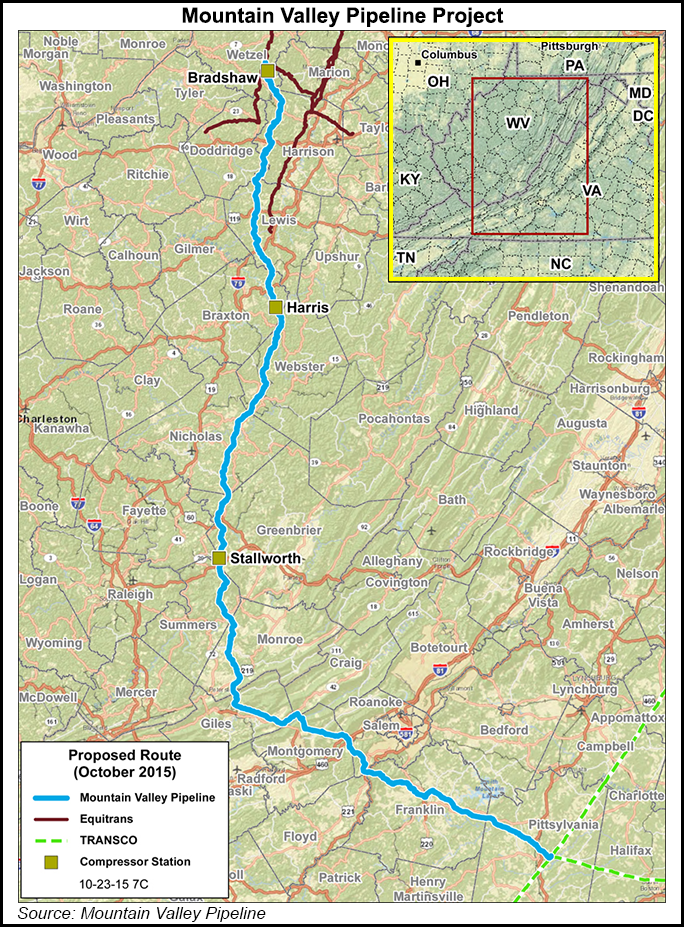Regulatory | Infrastructure | NGI All News Access | NGI The Weekly Gas Market Report
MVP Cleared to Resume Construction at WV Trail Crossing Following Court Order
FERC on Wednesday authorized Mountain Valley Pipeline LLC (MVP) to resume construction on a portion of the route in Braxton County, WV, where work had been halted following a recent federal appeals court decision.

The Federal Energy Regulatory Commission’s Terry Turpin, director of the Office of Energy Projects, gave MVP the go-ahead to resume work at the Weston and Gauley Bridge Turnpike Trail, citing an Oct. 10 order from the U.S. Court of Appeals for the Fourth Circuit.
In that order, the Fourth Circuit clarified that its July 27 order vacating and remanding federal approvals from the U.S. Forest Service (USFS) and the Bureau of Land Management (BLM) did not vacate the right of way and temporary use permits needed for the trail crossing.
After originally issuing a sweeping stop work order in response to the Fourth Circuit’s decision to vacate the USFS and BLM approvals, FERC has since taken a more narrow approach to applying the federal court’s ruling, allowing MVP to resume construction along most of the project route.
FERC’s decision on the Weston and Gauley Bridge Turnpike Trail provides some good news for a project that has faced significant legal hurdles and rising costs in recent months.
Plagued by ongoing legal challenges, permit issues, work stoppages and inclement weather, MVP has already raised its cost estimate for the project by about $1 billion to $4.6 billion. The project has also pushed back its in-service date twice in recent months, once from 4Q2018 to 1Q2019, and then again to 4Q2019.
Earlier this month, the Fourth Circuit vacated MVP’s Nationwide Permit 12 water crossing permit, issued by the U.S. Army Corps of Engineers. MVP has since lost all water crossing approvals as the various Army Corps districts have suspended the project’s permits in response to the Fourth Circuit’s decision.
MVP, a joint venture of EQT Midstream Partners LP (EQM), NextEra US Gas Assets LLC, Con Edison Transmission Inc., WGL Midstream and RGC Midstream LLC, would move 2 Bcf/d of Appalachian natural gas to markets in the Southeast and Mid-Atlantic via an interconnect with the Transcontinental Gas Pipe Line in southwestern Virginia.
© 2024 Natural Gas Intelligence. All rights reserved.
ISSN © 1532-1231 | ISSN © 2577-9877 | ISSN © 1532-1266 |
